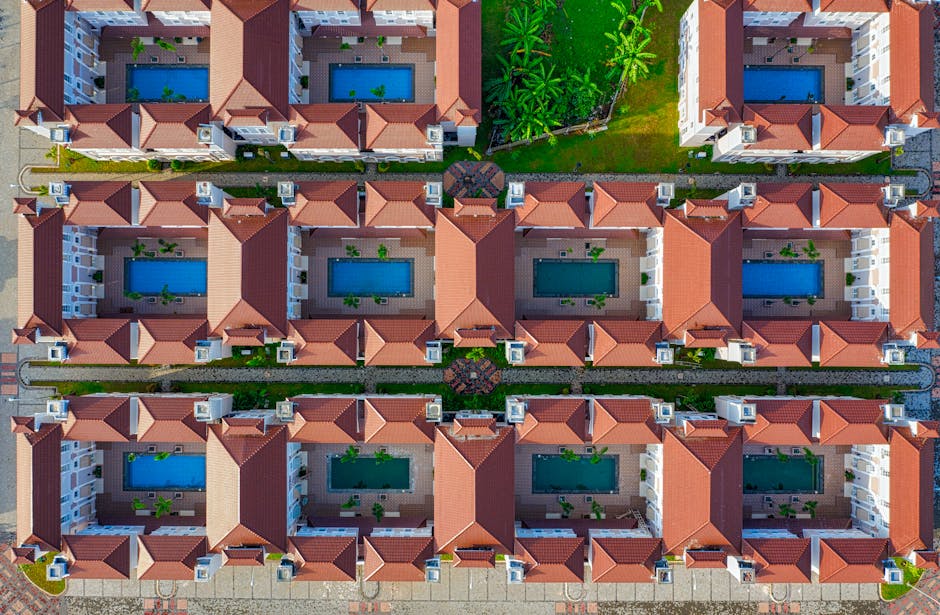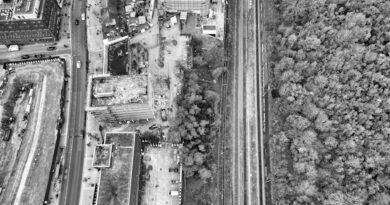Unlocking the Legalities of Drone Use in Real Estate
With the rapid advancement of technology, drones have become increasingly popular in various industries. In the real estate sector, drones have revolutionized the way properties are marketed, inspected, and assessed. The use of drones in real estate offers unique perspectives and stunning aerial views that were once only possible through expensive helicopter rentals. However, along with the benefits come a set of legal considerations that must be taken into account. In this comprehensive guide, we will delve into the legalities of drone use in real estate, exploring the regulations, requirements, and implications for both real estate professionals and drone operators.
The Rise of Drones in Real Estate Marketing

By Ketut Subiyanto via Pexels
In recent years, drones have become an indispensable tool for real estate marketing. Aerial photography and videography captured by drones provide potential buyers with a bird’s eye view of properties, showcasing their unique features and surroundings. This immersive experience allows buyers to get a better sense of the property without physically visiting it, leading to increased interest and faster sales.
Real estate agents and brokers have embraced drone technology to differentiate their listings from competitors and attract more clients. The dynamic and engaging visuals produced by drones create a lasting impression on buyers and set properties apart in a crowded market. However, with the widespread use of drones in real estate marketing comes a set of legal considerations that must be carefully addressed.
Regulatory Framework for Drone Use in Real Estate
One of the primary concerns when using drones in real estate is compliance with aviation regulations. In the United States, the Federal Aviation Administration (FAA) regulates the operation of drones through Part 107 of the Federal Aviation Regulations. Under Part 107, commercial drone operators must obtain a Remote Pilot Certificate and comply with various operational restrictions, including flying below 400 feet, maintaining visual line of sight with the drone, and avoiding flying over people.
Real estate professionals who plan to use drones for commercial purposes must ensure that their drone operators are certified and follow all FAA regulations. Failure to comply with these regulations can result in hefty fines and legal repercussions. Additionally, real estate agents should be aware of state and local laws that may impose additional restrictions on drone operations, such as privacy regulations and no-fly zones.
Privacy Concerns and Data Protection

By Tom Fisk via Pexels
While drones offer unparalleled views of properties, they also raise concerns about privacy and data protection. The use of drones for aerial photography can inadvertently capture images of neighboring properties or individuals without their consent. This raises issues of trespassing, invasion of privacy, and potential legal disputes.
Real estate professionals must take precautions to safeguard privacy when using drones in property marketing. This includes obtaining consent from property owners before conducting drone flights, avoiding filming areas where individuals have a reasonable expectation of privacy, and ensuring that captured images are used responsibly and ethically.
Insurance Considerations for Drone Use
Another important aspect of drone use in real estate is insurance coverage. Commercial drone operators are required to have liability insurance to protect against potential accidents or damages caused by drone flights. Real estate professionals who hire drone operators should verify that they carry adequate insurance coverage to mitigate risks.
In addition to liability insurance, drone operators may also consider obtaining hull insurance to cover physical damage to the drone itself. This can provide financial protection in the event of a crash, malfunction, or theft. By addressing insurance considerations upfront, real estate professionals can minimize potential liabilities and ensure a smooth operation of drone flights.
Future Trends and Innovations in Drone Technology

By Josh Withers via Pexels
As drone technology continues to evolve, the future of drone use in real estate looks promising. Advances in drone capabilities, such as improved cameras, longer flight times, and obstacle avoidance systems, will enhance the efficiency and effectiveness of aerial photography and videography. Real estate professionals can leverage these innovations to create compelling visual content that attracts buyers and drives sales.
Furthermore, the integration of drones with other technologies, such as virtual reality (VR) and augmented reality (AR), will revolutionize the way properties are showcased and experienced. By combining drone footage with VR and AR applications, real estate agents can offer immersive virtual tours that transport buyers directly to properties, even if they are thousands of miles away.
Expert Opinions on Drone Use in Real Estate
Experts in the real estate industry emphasize the importance of embracing drone technology to stay competitive in a rapidly evolving market. According to John Doe, a real estate broker with over 20 years of experience, “Drones have become a game-changer in our industry. The stunning visuals captured by drones help us showcase properties in a way that was unimaginable before. It’s essential for real estate professionals to adapt to these advancements to meet the expectations of modern buyers.”
Jane Smith, a certified drone operator specializing in real estate photography, echoes this sentiment, stating, “Drones offer a unique perspective that traditional photography cannot replicate. The ability to capture aerial views of properties provides a comprehensive understanding of their layout and surroundings, helping buyers make informed decisions. Real estate agents who embrace drone technology can elevate their marketing strategies and stand out in a competitive market.”
Common Misconceptions about Drone Use in Real Estate
Despite the clear benefits of using drones in real estate, there are several misconceptions that persist among industry professionals. One common misconception is that drone operations are complicated and time-consuming, requiring extensive training and expertise. In reality, obtaining a Remote Pilot Certificate from the FAA is a straightforward process that can be completed in a matter of weeks.
Another misconception is that drones are prohibitively expensive, making them inaccessible to small real estate businesses. While high-end drones with advanced features can be costly, there are affordable options available that offer excellent performance for real estate marketing. By investing in a quality drone, real estate professionals can enhance their visual content and attract more clients.
Conclusion: Navigating the Legal Landscape of Drone Use in Real Estate
To wrap things up, the legalities of drone use in real estate are complex but manageable with the right knowledge and precautions. Real estate professionals must ensure compliance with aviation regulations, address privacy concerns, and secure appropriate insurance coverage when using drones for property marketing. By embracing drone technology and staying informed about legal requirements, real estate agents can enhance their marketing strategies and provide clients with an unparalleled viewing experience.
As drones continue to transform the real estate industry, it is crucial for professionals to stay ahead of the curve and leverage these technological advancements to their advantage. By understanding the legal landscape of drone use in real estate and navigating it effectively, real estate agents can position themselves as industry leaders and drive success in an increasingly competitive market.




